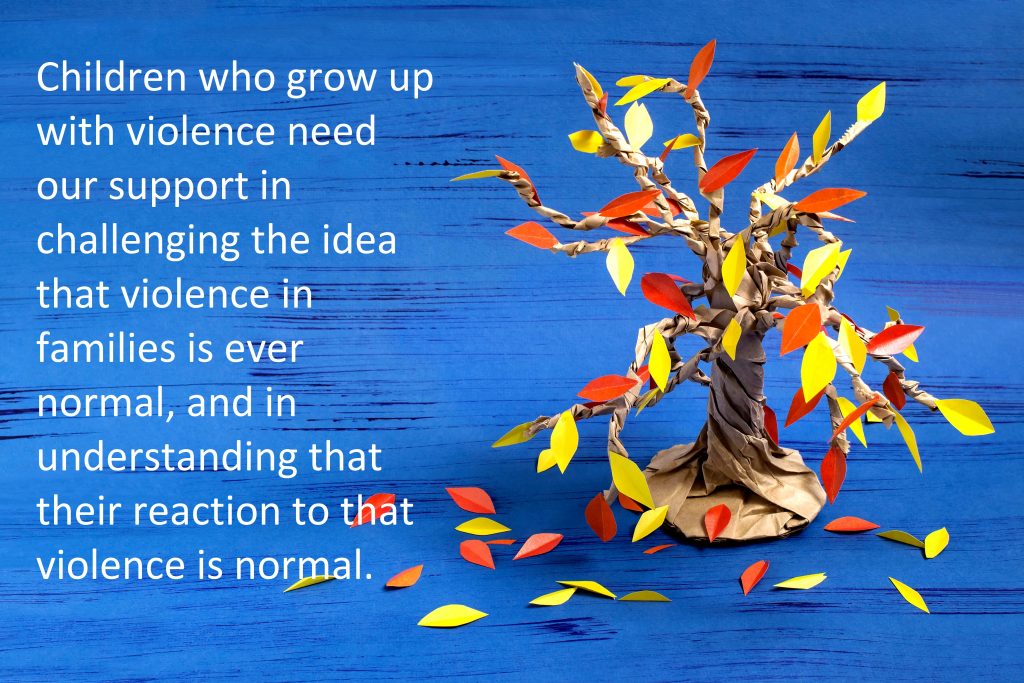Scotland is considering the removal of the defence of reasonable chastisement for parents who use physical violence against their children. (The report of the Equalities and Human Rights Committee on this proposal can be found here.) This means that Scotland is preparing to send a clear message to families that any use of physical force to discipline, coerce or chastise a child is wrong, effectively ‘banning’ smacking.
From a children’s rights perspective, this has been a long time coming, and the vast majority of child advocacy groups and young people’s forums are fully supportive of this change in law. As a psychologist and researcher with a long history of work in the broad field of family violence and domestic abuse, I’m relieved and delighted that we are one step closer to ending any suggestion that using violence against a child is ever justified.
One of the things that often happens in families where violence takes place is a blurring of the boundaries around what is ‘normal’ and what is not. Many children grow up with their parents telling them that a smack is normal, that they are being smacked out of love. This creates a lot of confusion about what is OK and what is not in parenting, and for children, it can make it very difficult for them to distinguish what is normal family life and what is abuse. In other words, children grow up thinking that the abuse in their family is normal. By sending a clear message that smacking is NOT ok, we draw a clear line as a society around ordinary parenting and abuse.
Teaching children their rights, and embedding those rights in law, is also a really important way of helping children to understand what is normal family life and what is abuse. All children have a right to protection from violence, abuse and neglect, according to the UNCRC. When children understand their rights, they are able to challenge family culture that might be telling them that violence is normal.

We also need to support children to know that their reaction to violence is also ‘normal’. When trauma occurs, our responses can be very strong. A lot of children worry that there is something ‘wrong’ with them, because of these strong reactions. It is important that we reassure children that reactions like fear, worry, being jumpy, feeling angry, or being very sad are ordinary reactions to the not normal experience of violence in the home.
Some reactions children might have to traumatic experiences in the family include:
- Nightmares
- Feeling afraid to be alone
- Worrying about non-violent parents or siblings when they aren’t there Wishing something bad would happen to the person who has hurt them
- Feeling guilty about things they did or didn’t do
- Feeling sick, having a sore tummy, getting headaches
- Feeling jumpy
- Feeling nervous or worried
- Seeing images of bad things that have happened, or feeling like it’s happening again when it isn’t.
- Reacting very strongly to things that remind them of the bad things that have happened.
Adults can help children recover from trauma by helping children to recognise that these are typical, understandable reactions to the bad things that have happened in their family. You can say things like:
- It is OK to feel jumpy or anxious. Scary things have happened and its normal to be jumpy or scared.
- I’ve seen this before. Lots of kids I’ve known who have had bad experiences feel the same way you do.
- It’s OK to feel angry / sad / frightened. Lots of people feel that way when bad things happen.
- Adults also often feel this way when bad things happen to them.
- You don’t have to talk about this, but if you want to, you can always talk to me.
We can also help by advocating for children’s rights – their right to protection from harm, and their right to recovery from trauma and reintegration. If we’re to be a nation that respects children’s rights, we need the laws to protect children from risk of harm, and the resources to respond effectively to help them recover when harm does occur.